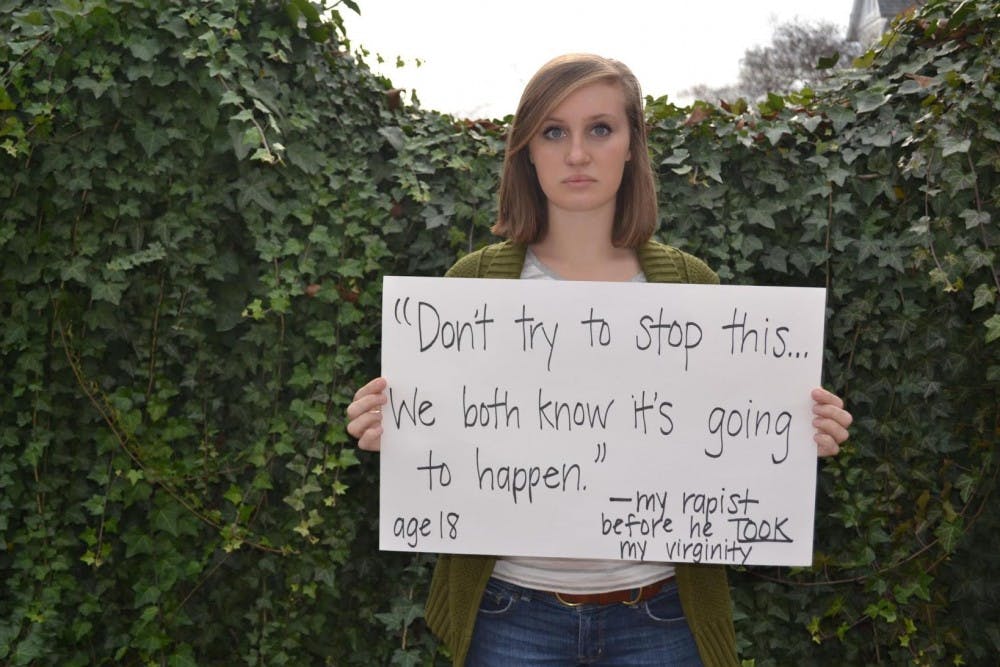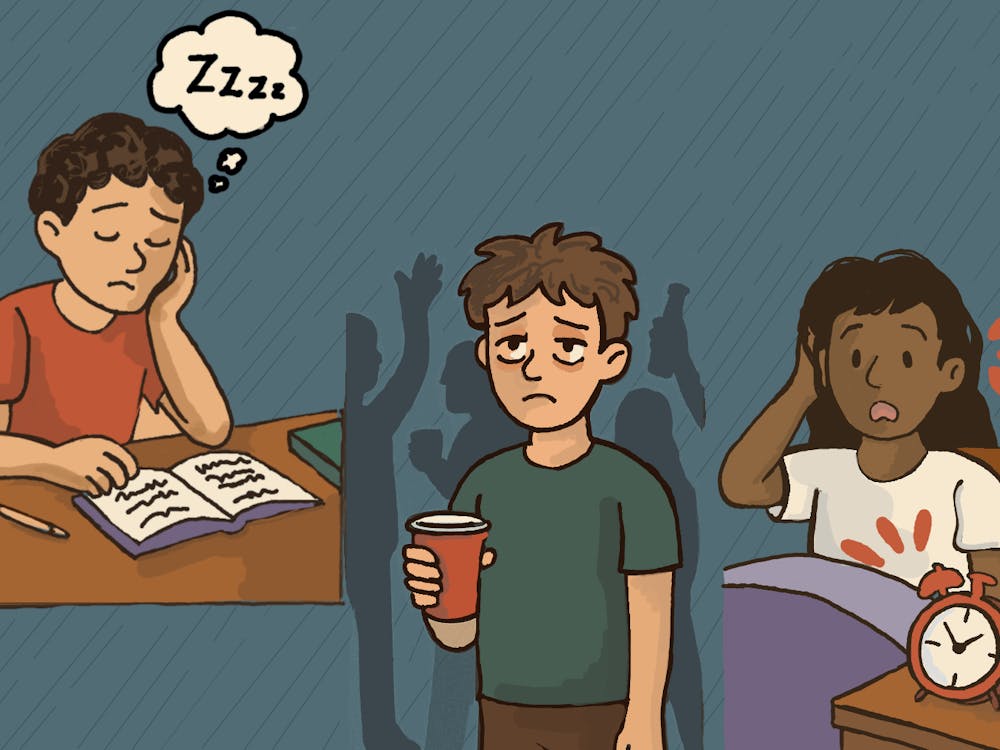Fourth-year College student Annie Forrest has worked as a survivor advocate and anti-sexual violence activist for most of her time at the University. Forrest was a first year when she was raped in October 2011.
After her assault, Forrest faced the deep, personal effects of collegiate rape culture. At first, she suffered in silence. But more than a year later, Forrest chose to share her story through the national photography project, Project Unbreakable.
According to their website, Project Unbreakable aims “to give a voice to survivors of sexual assault, domestic violence, and child abuse, featuring photographs of survivors holding posters with quotes from their abusers.” When the organization published her photo, Forrest catapulted from silent survivor to powerful advocate with the click of a camera.
“My mom was concerned about the backlash I would receive … but what happened when I posted it on Facebook was an outpouring of love,” Forrest said. “Honestly, I wasn’t prepared for all the positivity and support. It was overwhelming in a beautiful way.”
Following her public acknowledgement of being a survivor, Forrest became involved with One Less and the Sexual Assault Resource Agency, becoming an advocate at the University and within the local community. Through these organizations, Forrest was able to both find a support system and build support for others.
“Other survivors started coming forward to me with their own stories, [which] was something I had no idea would happen,” Forrest said. “In trying to empower myself, I ended up empowering other people indirectly. I realized I’m the voice for a lot of people who aren’t comfortable sharing their own stories.”
Third-year College student Alex Pinkleton — also a survivor, advocate and member of One Less — works to empower other survivors by sharing her story.
“[My own experiences and] hearing stories from friends and other people in the community made me realize how significant of a problem [sexual assault] is here,” Pinkleton said. “Advocacy work has been an outlet for a lot of my anger and frustration that I have surrounding the issue. I’m hoping that it helps other people in terms of allowing them support.”
Forrest, Pinkleton and other advocates at the University have worked continuously alongside the administration in recent years to increase awareness and improve sexual assault policies.
A recent article in Rolling Stone claimed the University lacks a “radical feminist culture,” which in part, the author claims, led to the prevalence of sexual assault on Grounds. Forrest said she disagrees, saying she believes true advocacy goes beyond staging a well-organized protest.
“I think creating positive relationships with the administration, fraternities and student groups is a more effective way of being an advocate,” Forrest said. “It’s important to remember to be intentional and purposeful with your type of support. In One Less, we try to focus on tangible ways [students] can look inside ourselves and see how we’re contributing to the culture and change it.”
Forrest hopes students’ passion for anti-sexual assault advocacy persists beyond the initial reaction to the recent Rolling Stone article.
“I really do implore our community to not let [the action] stop in the coming weeks,” Forrest said. “There is no instant gratification — the only thing we can do is start to change our culture, which is going to take a really long time.”
In the same Rolling Stone article, a third-year student — identified by only her first name, Jackie — came forward with details of a gang-rape she experienced at the University chapter of Phi Kappa Psi fraternity during her first year. In the article, she describes being discouraged against reporting the rape, as her friends feared social repercussions that might come from outing the fraternity members for their crime.
Following the article’s publication, many students expressed shock and anger toward Jackie’s friends’ reported reaction to her attack. Forrest, however, said this reaction is typical due to a lack of education surrounding sexual assault.
“People think Jackie’s friends’ response to her assault was unusual, but I don’t think it is,” Forrest said. “No one questioned my situation. It’s not their fault it happened and I didn't report, but at the same time if they did question it, my story may have been different.”
Pinkleton said a large part of the problem surrounding reporting starts with those closest to the survivor.
“I think [many] times the issue that survivors have [is] either friends of the accused or their own friends [saying] things in defense of the perpetrator before they come to the defense of the survivors,” Pinkleton said. “Now that this article has come out, people realize we do have a lot of survivors in the community that we need to support, and [we must] act on their behalf before acting on behalf of the perpetrator.”
Forrest said cultural change occurs on an individual level — as friends, responders and fellow human beings.
“I’d like to see the status quo change here, and support for survivors begin from the first moment a sexual assault happens,” Forrest said. “We have a responsibility to each other as human beings on the most basic level to take care of each other [and] we have a responsibility as U.Va. students to take care of each other. We cannot let it stop after this story isn't told anymore.”







